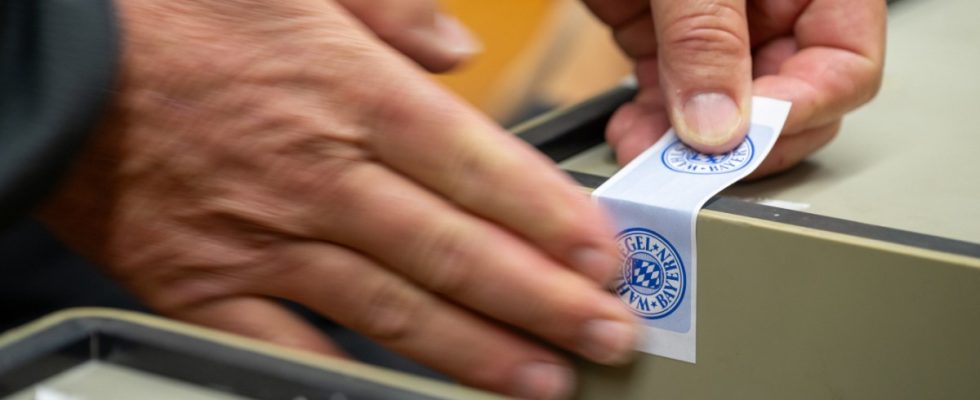CSU boss Markus Söder firmly believes that the Federal Constitutional Court will make a decision on the lawsuits against the new federal election law. Otherwise the election may have to be reversed, said the Bavarian Prime Minister in Munich on Wednesday. The lawsuits from the CSU, the Bavarian state government and the Union parliamentary group have been filed and the court can now take action. If the Karlsruhe judges do not promise such a decision in a timely manner that would suffice for the election in autumn 2025, the plaintiffs would file an application for an interim injunction.
At the moment, the CSU does not have to worry about slipping below the five percent hurdle and thus missing out on entry into the Bundestag, emphasized Söder. Nationally, the CSU is ranked around seven percent in surveys. The Union is convinced that the electoral law after the reform is undemocratic. It is part of democracy that directly elected candidates are also allowed to enter the Bundestag. “We want the issue to be clearly clarified.”
In June, the Bundestag passed the new electoral law despite resistance from the Union and the Left Party. The reform aims to reduce the size of the Bundestag. With currently 736 members, the Bundestag is the largest freely elected parliament in the world. The new electoral law now caps the number of seats at 630. Voting continues with first and second votes. However, there are no longer any overhang or compensation mandates.
In the future, the number of seats a party will have will only be determined by its second vote result. This can result in successful constituency candidates not receiving their direct mandate. The basic mandate clause is also no longer applicable. According to her, parties have so far entered the Bundestag based on the strength of their second vote result even if they were below the five percent hurdle but won at least three direct mandates. For the CSU, which can only be elected in Bavaria, this regulation would mean that it would no longer be represented in the Bundestag if the nationwide result was less than five percent. In the 2021 election, their share of the second vote was 5.2 percent.

